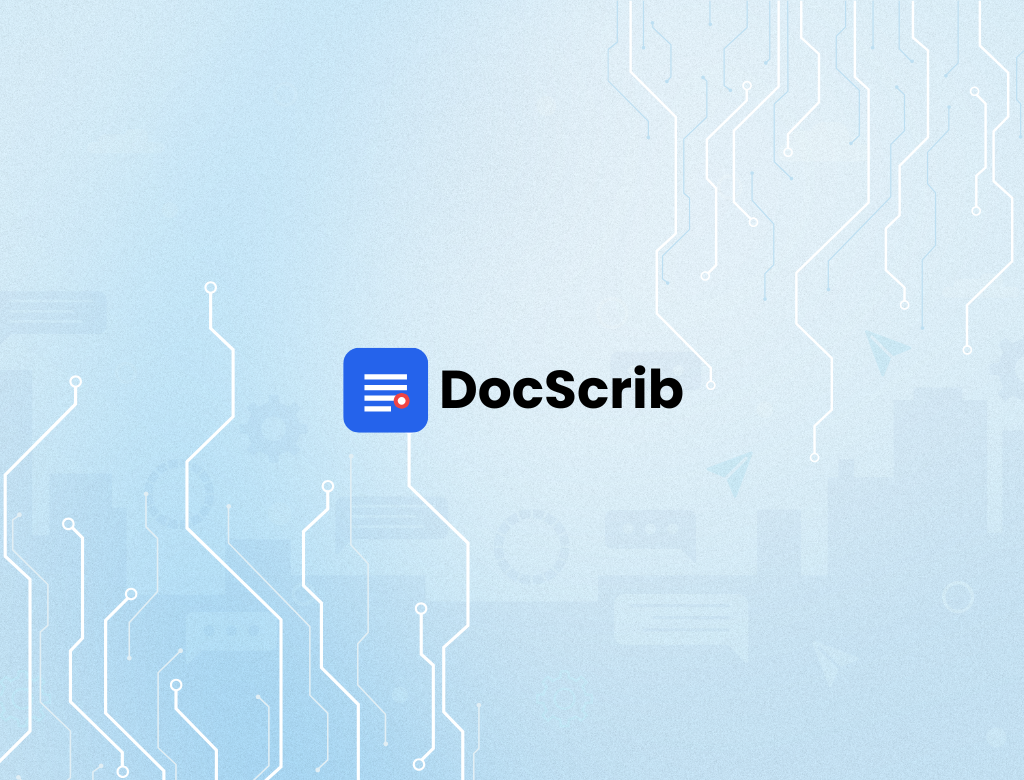Updated on: September 16, 2025
Accurate and detailed patient information is the foundation of effective healthcare. One of the most crucial tools for gathering this information is the Medical History Form. At DocScrib, we understand the value of streamlined documentation in delivering high-quality, patient-centered care. In this comprehensive guide, we’ll show you how a well-designed medical history form can enhance clinical efficiency and accuracy—plus, we’re offering a free template to help you get started.
What is a Medical History Form?
A Medical History Form is a document that collects essential information about a patient’s past and current health. It includes medical conditions, allergies, medications, surgeries, family history, and lifestyle factors. This form is used by healthcare providers across various specialties to:
- Assess patient risks
- Guide treatment planning
- Ensure safety in procedures and prescribing
- Provide continuity of care across teams
Key Sections of an Effective Medical History Form
To be comprehensive yet user-friendly, a medical history form should include the following sections:
- Patient Demographics
- Name, DOB, Contact Info
- Current Medications & Allergies
- Prescription & OTC medications
- Allergies to medications, foods, or environmental factors
- Past Medical History
- Chronic conditions (diabetes, hypertension, etc.)
- Previous illnesses or injuries
- Surgical History
- Past surgeries and dates
- Family History
- Genetic predispositions (heart disease, cancer, etc.)
- Social & Lifestyle Factors
- Smoking, alcohol use, exercise, diet
- Review of Systems (Optional)
- Organ system-specific questions
- Patient Signature & Date
Why You Need a Medical History Form
1. Improve Patient Safety
Knowing a patient’s allergies, medications, and conditions helps avoid medical errors and adverse events.
2. Enhance Clinical Decision-Making
A comprehensive history aids in diagnosis and guides evidence-based treatment.
3. Ensure Continuity of Care
When multiple providers are involved, a standardized history form ensures consistency.
4. Meet Legal & Insurance Requirements
Accurate documentation protects both patients and providers and supports reimbursement claims.
Download Your Free Medical History Form Template
We’ve created an easy-to-use, printable medical history form that you can download and implement right away in your practice.
👉 Download Free Medical History Form Here
How AI Medical Scribes Like DocScrib Revolutionize Documentation
While a paper form is a helpful tool, modern healthcare is increasingly moving towards AI-driven documentation. Here’s how DocScrib—an advanced AI Medical Scribe—can complement your medical history forms:
- Real-Time Documentation: Capture patient conversations as structured notes.
- Automated Medical History Summaries: Generate detailed patient histories based on past visits.
- HIPAA-Compliant Data Security: Keep sensitive information protected.
- Seamless EHR Integration: Eliminate redundant data entry.
With DocScrib, you can focus more on patient care and less on paperwork.
Best Practices for Using Medical History Forms
- Review & Update Regularly: Patient information can change—review forms at each visit.
- Keep It Simple & Clear: Avoid overwhelming patients with complex language.
- Digitize When Possible: Electronic forms reduce errors and make data retrieval faster.
- Combine with AI Tools: Use DocScrib for real-time clinical note generation.
Additional Resources for Clinicians
At DocScrib, we’re passionate about helping healthcare providers work smarter, not harder. Explore these free resources:
- AI Medical Scribe for Happier Clinicians
- Free Nursing Report Sheet Templates
- Treatment Plan Templates
- Patient Handoff Best Practices
Final Thoughts
A well-designed Medical History Form is the cornerstone of safe, effective, and personalized care. Download your free template today and discover how AI Medical Scribes like DocScrib can take your clinical documentation to the next level.
👉 Download Free Medical History Form
👉 Book a Free Demo with DocScrib
Stay informed. Stay efficient. Stay patient-focused—with DocScrib.
